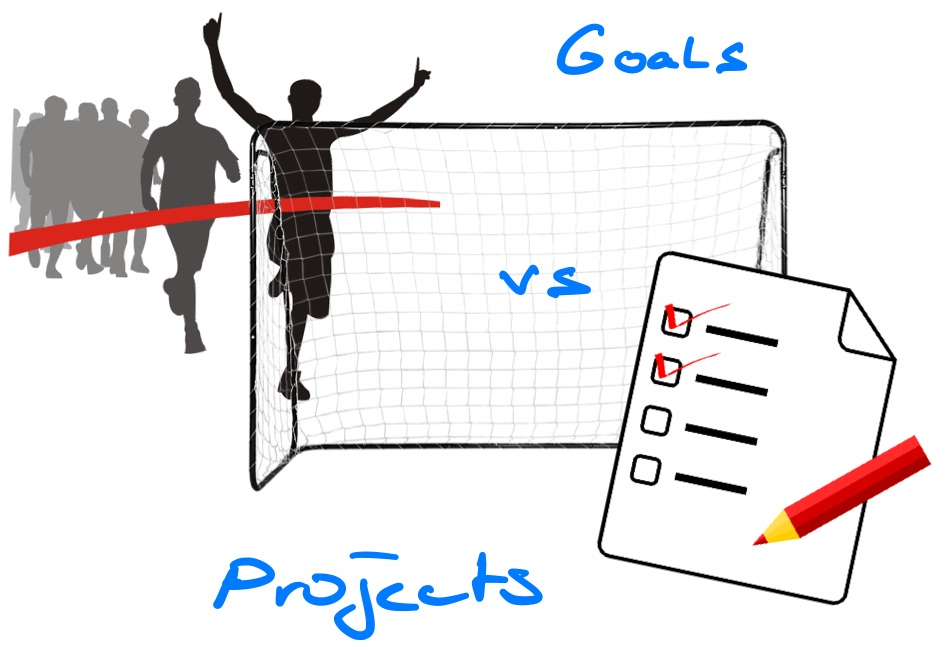⏱️Being productive and healthy productivity → planning → goals
Goal setting is necessary, but that specific choice of words is an ill-chosen metaphor (metaphors are not innocent figures of speech. In real life we hardly ever know the exact starting and endpoints of our goals, and the path in-between is never straight. Thinking in goals is setting yourself up to fail (You get used to failing?), because it makes everything a zero-sum game.

Instead of goals, talk about projects. Projects that in turn have smaller steps in between. If we adjust those steps as needed we will have a much better chance of success. Being flexible over both the route and the endpoint will make reaching any goal in a healthy way much more likely. Projects are more positive then goals. Ticking of parts of a projects is energizing.
Difference between a goal and a project: a project is (must be) very specific, a clear starting and end-point. Goals are usually vague “I want to be rich”, “I want to become an early riser”. These both lack specificity.
- See also Tiny Habits - B J Fogg
- Tricking motivation reduces reliance on willpower – goals are motivating
Literature notes
🥫 The Paradox of Goals - Ness Labs
- We all need to set goals, it is build into nature, yet both not reaching, reaching and trying to reach a goal gives stress
- The metaphors used around goals are all problematic
- To be able to reach a goal two things are needed:
- the wish to achieve the goal
- the possibility to reach the goal
- Goals are often defined as simple A → B, but in reality this is seldom the case
- A possible solution is not one far away goal, but cutting the path in smaller steps, and using trial and error to move forwards towards the goal
- This turns the process itself in part of the goal
Fleeting notes
We cannot live without goals, they are the purpose of life
- Goals indicate movement
- No movement equals death sharks need to keep moving
The language around goals is not good, it sets us up to fail
-
linear goals are inherently fragile
-
Goals drive us forward, we set out to achieve our goals, we make progress toward a goal. Those are called orientational metaphors.
-
It draws a picture of a straight line between A and B
-
It makes it look a if the point of origin and the end goal are clearly defined
-
We usually lack information about reality
Also reminds me of GTD, projects need to be cut into small clear steps, otherwise a project will fail
-
This is more a failure of language then of goals in and of itself.
- It over-simplifies goal setting, it makes it sound that establishing a target, the goal, is enough. Instead the goal should be a soft(er)-target, while the steps in between warrant more careful consideration
- Being flexible over both the route and the endpoint will reaching any goal in a healthy way much more likely